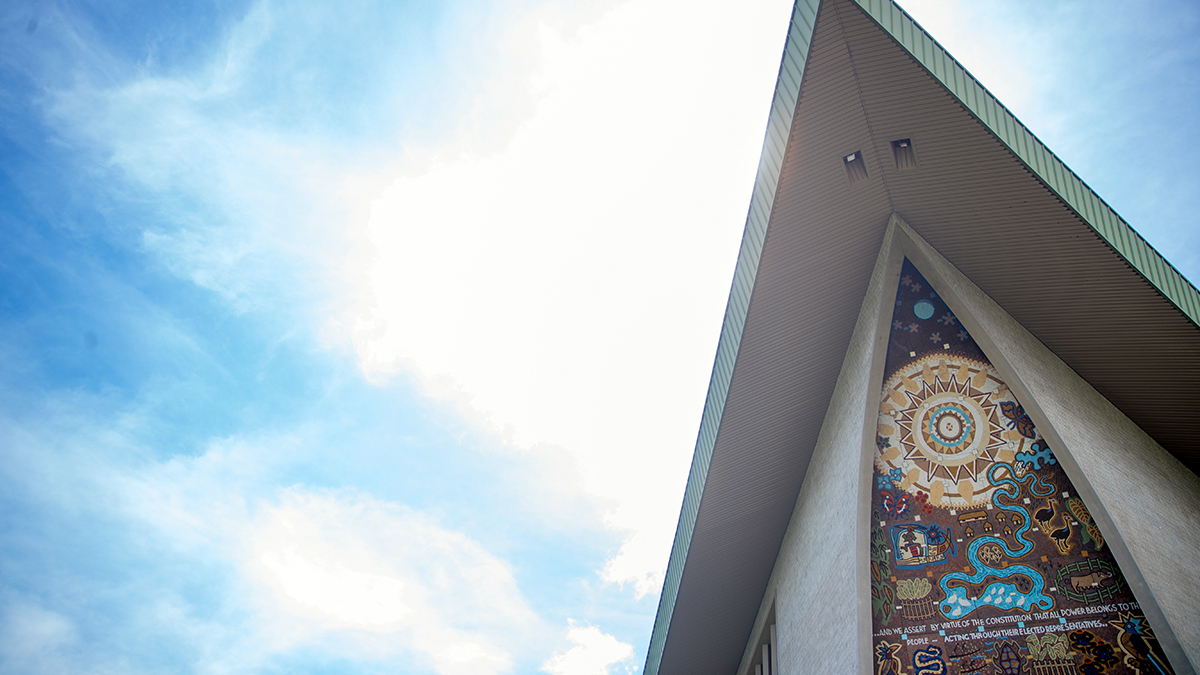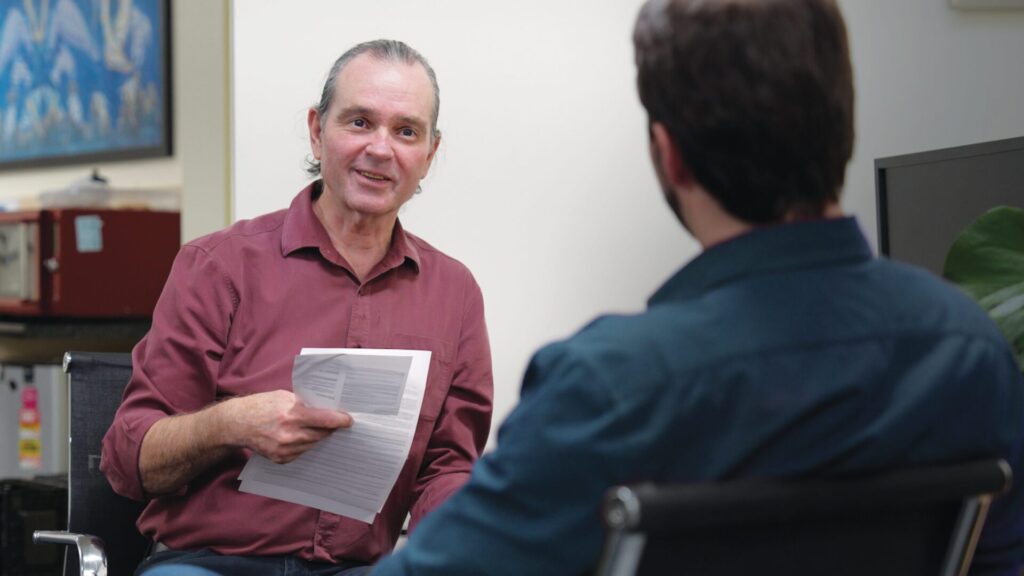Politics in Papua New Guinea is often contentious. For Seventh-day Adventists, it provides important challenges as well as opportunities. Every election a high number of Adventists, representing various parties, contest for the 111 seats across the country. The recent election in June was no exception.
Political participation is a constitutional right for all citizens who want to be involved, including Adventists. Across the Pacific Islands and in many developing countries, Adventists hold key political positions.
Dr Ben Carson’s run for the US presidency in 2016 raised the profile of the Church and invited huge interest from people around the globe in the Adventist faith and what it teaches about politics. Perhaps some of those interested may have been disappointed that the 28 fundamental doctrines of the Adventist faith do not strictly provide a political ideology but instead a set of principles intended to create a Christ-centred, advent-focused community. Nevertheless, Dr Carson’s campaign certainly highlighted the Adventist faith and reinforced the view that Adventists can engage in politics.
Opportunities
In the case of Papua New Guinea, where there are high levels of government corruption and a lack of basic services, Adventist candidates are often popular because of their adherence to a relatively strict code of discipline and lifestyle that includes no alcohol, monogamy, charity and goodwill, and faithfulness to church. Adventist politicians are relied on not only to deliver the social services and address corruption, but also to make morally informed decisions on important national issues.
Having Adventists in high office has also been beneficial for the Papua New Guinea Union Mission and local Adventist organisations when it comes to making representations to the government. Like in many Pacific Island countries, Adventist politicians have been key supporters of Church-run education and health institutions as well as evangelistic campaigns.
Earlier this year, Seventh-day Adventist and recently ousted PNG opposition leader Don Polye gave prominence to Pastor Doug Batchelor’s visit to the country by skipping a parliamentary session to attend the welcoming ceremony. Another Adventist politician, John Pundari, has built a vibrant church and ministry organisation at 17 Mile outside Port Moresby. In 2014, another Adventist, former opposition leader Belden Namah, committed K100,000 to Kopiago Adventist church. These are only a few examples of the positive influence Adventist politicians have had on the work of the Church in PNG.
Challenges
But these positives often come at the cost of significant challenges to Adventist politicians and the Church as a whole. For PNG the challenges come in three different stages, as demonstrated in this year’s elections.
The first set of challenges occurs during the campaign stage. According to the Australian National University’s Development Policy Centre, Papua New Guinea is known for having one of the world’s “most expensive elections”—bribery and vote-buying form part of the overhead costs in running elections. Adventist candidates are highly vulnerable to engaging in some forms of bribery and inducement to appease electoral officials or voters in the hope of influencing election outcomes. And, as is the case in democratic countries around the world, campaigning may include deliberate misrepresentations or downright lies to convince voters.
The second set of challenges for Adventist candidates comes during the counting of votes. In some instances, voting results may lead to tribal fights and electoral fraud. For example, the 2017 election saw supporters of an Adventist candidate engaged in violence, resulting in the loss of innocent lives and property, not to mention the killing of police officers.
In Port Moresby, an Adventist candidate was accused of fraudulently influencing election results. The incident was widely circulated in the media and forced the president of the Central Papua Conference to deny any attachment with the accused candidate. [pullquote]
The third set of challenges comes after elections. Adventist losing candidates may continue their animosity against voters who failed to vote for them, including fellow Adventists. Winning candidates are expected to deliver on election promises. The latter is critical and is the dilemma facing Adventist MPs in the new parliament.
Failing to deliver or succumbing to corruption and mismanagement will not only jeopardise their political reputation but also harm the positive Adventist image admired by voters during the election campaign. As ambassadors of the Adventist faith, their actions or inaction can generate distrust among the people and ultimately become a hindrance to evangelism. This has been the case with Adventist politicians in previous governments.
A number of serious corruption allegations currently in the courts involve Adventist politicians. Others have been accused of facilitating unscrupulous deals, misleading the public on important issues or simply failing to deliver on the basic services promised during their elections.
Having Adventist politicians in parliament is a win for the Church. It has long been a practice to call on them to help finance evangelistic meetings, facilitate government partnerships with the Church and construct a church or a pastor’s house. These are undoubtedly worthy benefits, but these arrangements can also raise some serious questions. For instance, the likelihood of financial support rendered to the Church being corruptly procured. Or when the Church enters into partnerships with the government this can mean, at times, bypassing certain regulatory bodies. Not all assistance or support from political actors should be counted as blessings—churches need to be cautious when seeking political assistance that it does not discredit the Adventist faith or undermine state institutions.
Conclusion
Dr Carson’s views on same-sex marriage and social services prompted criticism that his Adventist faith lacked empathy. The issues are different in the Pacific Islands and especially in Papua New Guinea, where political contests are played out in a highly fragmented context with strong tribal affiliations. People expect that their political leaders will deliver on their promises; the failure to deliver can have great ramifications on the way the community views a political leader’s life, family and faith.
Our political leaders need more than just our prayers as they navigate these challenges and represent hope to the electorate. As interest in politics increases among Seventh-day Adventists, the Church may need to actively provide counselling and mentoring programs to assist MPs with their challenges as well as implement countrywide revival and reconciliation programs after elections to address election-related divisions and conflicts.
In a world perplexed by political contests and moral decline, the tenacity of Adventist leaders can be a powerful tool for witnessing. Devout Christian and Seventh-day Adventist David Maraga, the Chief Justice of Kenya who recently led the Kenyan Supreme Court to invalidate Kenya’s presidential election on the basis of widespread election fraud, is an inspiration to Adventists in public office—to remain true to Christ’s values despite the pressures and intimidations of politics.
Bal Kama is a commentator on PNG affairs and a PhD candidate at the Australian National University in Canberra. He is from chimbu Province.






